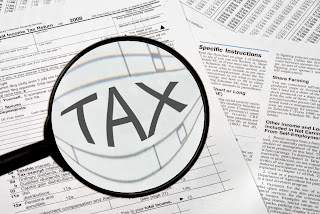As per Internal Revenue Code (section 6331): If any person liable to pay any tax neglects or refuses to pay the same within 10 days after notice and demand, it shall be lawful for the Secretary to collect such tax (and such further sum as shall be sufficient to cover the expenses of the levy) by levy upon all property and rights to property (except such property as is exempt under section 6334) belonging to such person or on which there is a lien provided in this chapter for the payment of such tax. Levy may be made upon the accrued salary or wages of any officer, employee, or elected official, of the United States, the District of Columbia, or any agency or instrumentality of the United States or the District of Columbia, by serving a notice of levy on the employer (as defined in section 3401(d)) of such officer, employee, or elected official.
Basically stated, if you don’t resolve your tax debt with the IRS, under current law, the IRS will have the right to collect that tax by taking possession of your property and wages equal to the taxes you owe. This also includes any interest that has accumulated, penalties assessed, and all legal costs the IRS accrues while taking possession of your property.
As you can guess, this is probably the worst case scenario when it comes to not paying your taxes. Can you be jailed for not paying your taxes? Yes. However, imprisonment is very rare and is typically reserved for the most egregious of cases. Still, it is of utmost importance to resolve your tax burden as soon as possible because even a levy is serious.
What can I do if the IRS levies my property and wages?
When it comes to a tax levy, there are many stipulations the IRS must adhere to. The IRS must:
- Notify you (in person or by certified mail) no less than 30 days before the levy happens.
- Include information pertaining to the provisions of the levy, the procedures of the levy, the administrative appeals available to whom the levy applies, and alternatives to levy available to the taxpayer, among other things.
- Suspend the levy during the day the taxpayer is appearing before an IRS after summons.
- Suspend the levy if an “offer in compromise” has been approved by the IRS.
- More information can be found here.


